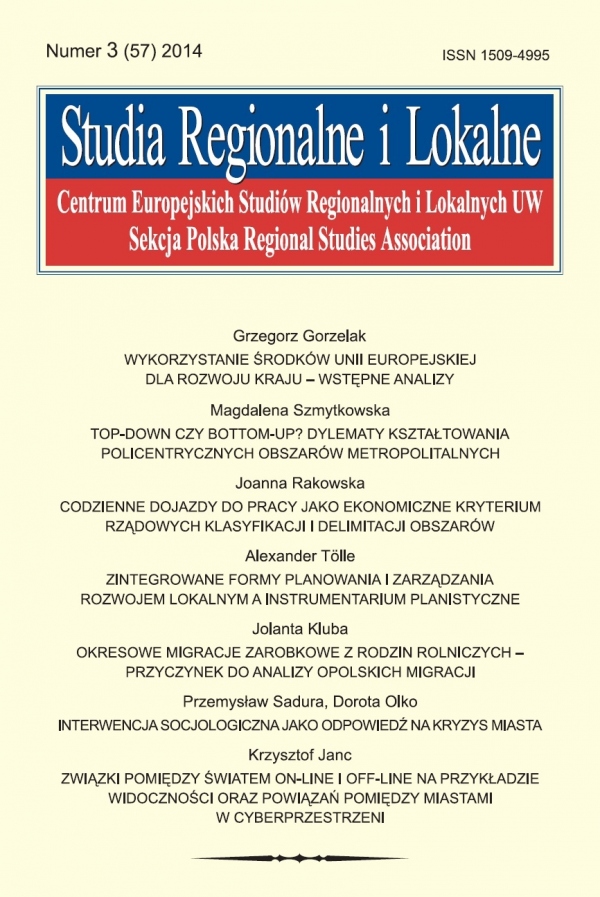Published in
3(57)/2014

- Grzegorz GorzelakThe use of the European Union financial resources for the development of the country: Preliminary analyses[more]
- Magdalena SzmytkowskaTop-down or bottom-up? The dilemmas of creating polycentric metropolitan areas: Case study of the Tri-City[more]
- Joanna RakowskaCommuting as an economic criterion of categorization and delimitation of areas (examples of US and Canadian governmental classifications)[more]
- Alexander TölleIntegrated forms of planning and managing local development and the planning toolkit. The contrast between the Polish and the German system[more]
- Jolanta KlubaTemporary labour migrations in farmers’ families. A preliminary study of the Opolskie voivodeship’s migrations[more]
- Przemysław Sadura, Dorota OlkoSociological intervention as a response to the crisis of the city. A case study of the renovation of Kawęczyńska Street in Warsaw[more]
- Krzysztof JancOn-line and off-line world relations on the example of visibility and connections between cities in the cyberspace[more]
- Stanisław CiokMagdalena Belof, 2013, Teoria a praktyka planowania regionalnego. Doświadczenia polskie w planowaniu przestrzennym po 1998 r. (recenzja)[more]


